
POSSIBLE Africa
Advancing social sciences
and humanities
in Africa .
Social and behavioural sciences | Social Science & Humanities (SSH Programme) |POSSIBLE Africa
WHAT WE DO
POSSIBLE AfricaSocial sciences and humanities help in gaining knowledge of society. These underfunded science disciplines in Africa rely mostly on international funding with minimal government funding that translates into little support for institutions dedicated to the field in academic and non-governmental sectors (The State of Social Science in Africa, 2010).
The Preparing Outstanding Social Science Investigators to Benefit Lives and Environments in Africa initiative (POSSIBLE-Africa) is a two-year initiative to fund research to advance the fields of social sciences and humanities in Africa and to enable the production of evidence to inform sustainable development in Africa. The initiative is being implemented with support from Carnegie Corporation of New York.
Postdoctoral fellowships
POSSIBLE-Africa will support up to 25 African postdoctoral fellowships increasing the number of scholars contributing solutions to challenges facing Africa and the world.
The 25 Fellows will receive $65,000 during their two-year postdoctoral fellowships and will be expected to:
- Conduct research and attend a 12-week training course, which will give POSSIBLE-Africa's researchers opportunities to advance their research knowledge and skills.
- Spend 40 hours in additional formal learning to address gaps in their research and related skills.
- Implement at least one policy or public engagement activity.
- Engage as mentees within a structured initiative, in which they will receive tailored career guidance from a senior mentor through scheduled virtual sessions.
- Attend and present their research in monthly virtual feedback series.
- Produce and submit a minimum of two lead-authored, short form scientific outputs (e.g., book chapter or journal article) to a reputable publisher (journal or book).
- Contribute to curriculum development activities that use the skills, knowledge and/or findings generated through the fellowship.
- Develop and submit a new research grant application which if funded, will enable them to build on the research conducted through the POSSIBLE-Africa fellowship.
POSSIBLE Africa
Aisha Sembatya Nakiwala of Makerere University in Uganda will investigate how communities which supply migrant labour can contribute to combating unsafe migration. Studies have shown that although unsafe migration is rampant and injurious to families, communities and countries, measures to curb it have largely remained unsuccessful because they lack support from the communities that produce labour. Nakiwala will evaluate a grassroots communication intervention to alter community attitudes and practices that underpin unsafe labour migration and implement and evaluate the intervention in three districts in Uganda. She will use Participatory Action Research, involving anecdotal interviews, and community surveys and dialogue, to analyse the perspectives of families, returnees and potential migrant workers. She will examine the topics of labour migration, including the understanding, attitudes, and perceptions of subjects about existing practices on labour migration and its drivers and effects. She will use this data to examine how vulnerable populations can participate in measures to address dangerous migration and to improve migrant labour practices.
Dr Cynthia Nwobodo of the University of Nigeria, Nsukka is studying the capacity for controlled environment agriculture (CEA) in Southeast Nigeria. Climate change in Africa is causing escalating food insecurity and the malnutrition, poverty and widespread conflict that result. CEA optimizes production resources, increases the resilience of farmers and other actors, minimizes climate risks, and potentially reduces the carbon footprint of agriculture. However, for CEA to contribute meaningfully and sustainably to agriculture, capacity must be developed, and enabling environments must be created through policies at national and sub-national levels. Because climate change exacerbates existing vulnerabilities, a sustainable CEA system should be locally-led and ensure gender equality, equity and inclusion. This research seeks to provide answers to the socio-cultural, eco-social, and socio-technical dimensions of CEA. The overall impact has the potential to enhance food security for African households in the face of climate change.
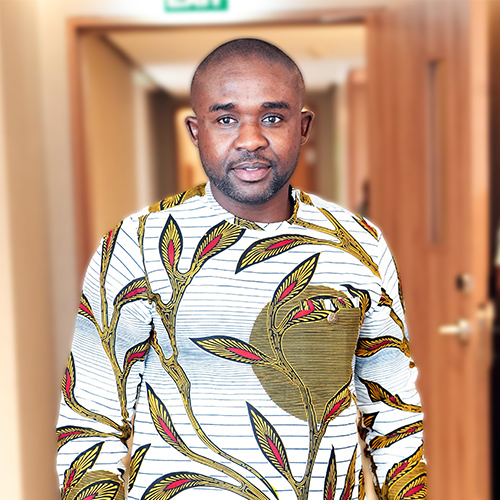
Ebenezer Forkuo Amankwaa of the University of Ghana explores how indoor classroom air temperatures, and the condition of school buildings and classrooms interact to affect the extreme heat experiences and thermal comfort of schoolchildren and teachers in Ghana. These issues remain poorly understood and underreported in Africa where school buildings and classroom characteristics are not adapted for optimal thermal comfort, conducive learning outcomes and the wellbeing of students. This research records and develops indicators of how the air temperatures and humidity experienced by schoolchildren and teachers affect teaching and learning. Through action-oriented school events and stakeholder engagement, this work contributes to developing culturally sensitive and low-cost adaptation strategies to reduce school heat stress. It also informs practices and policies to make education more climate sensitive. By incorporating these insights into policymaking, we can foster more effective interventions that account for the integrated adaptation measures that are necessary to prepare for and build resilience against climate change in African cities.
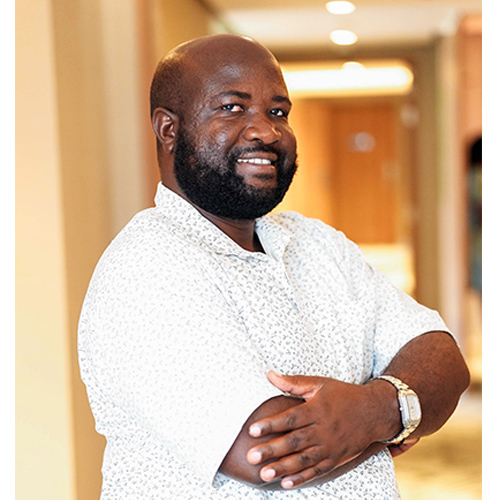
Elgidius Ichumbaki from the University of Dar es Salaam in Tanzania investigates the use of music videos and cartoons to educate the public on the value of UNESCO-recognized cultural heritage sites Olduvai Gorge and Kilwa in Tanzania. A cultural heritage site is a distinctive locality with a history that has value to the community and that is worthwhile to preserve for educational, research and tourism purposes. Ichumbaki's research envisions building on conventional approaches of academics who popularize the values of cultural heritage sites through publishing research reports and making presentations at international conferences. Because the reach of traditional research dissemination formats through published peer-reviewed research papers and books tends to to reach wider audiences, locally and nationally, more user-friendly channels are being explored. These include social media sites such as Facebook and Mastodon which target individuals who use smart phones, enabling access to both the scientific literature and rich information about cultural heritage sites. With such access, their influence of policy is more likely to be well-informed.
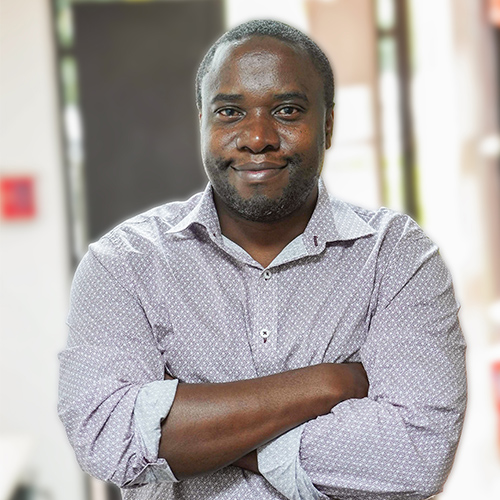
Eria Serwajja of Makere University is examining the socio-economic intricacies that underpin food waste and its implications on food and environmental (in)security in Uganda and South Sudan. There is increasing food waste globally, and the number of hungry and undernourished people is also on the rise. Through a mixed methods approach, this study will critically examine the food value chain and resource flows in the cities of Kampala, Uganda, and Juba, South Sudan. Methods used are qualitative and quantitative, entailing interviews, focus group discussions, ‘my food waste’ logbooks, surveys, and a review of secondary information. It is envisioned that the findings will help to inform the scaling up of strategies to address and enhance food (in)security in cities and other urban areas.
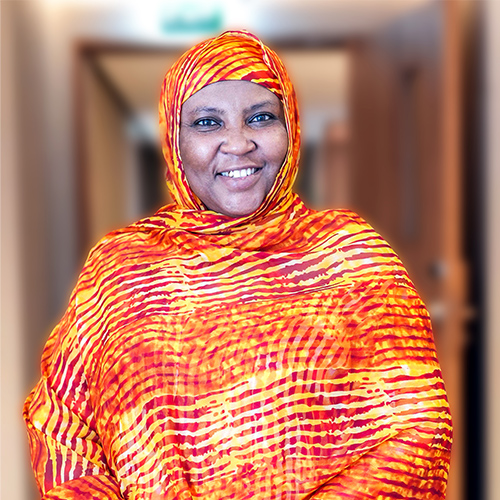
Hauwa Mohammed Sani, from Ahmadu Bello University in Zaria, Nigeria, will explore the role of women in fostering conflict resolution and peacebuilding in Kaduna, Katsina and Zamfara states of Northern Nigeria. This research aims to amplify the voices of women in decision-making, crucial for sustainable regional peace and security. It delves into the repercussions of conflict on rural women in Kaduna, Zamfara and Katsina while assessing how the involvement of women in decision-making can bolster peacebuilding efforts. Additionally, the study will scrutinize the interplay between cultural norms and the efficacy of women's participation in peace-building initiatives within these states. One initiative will be to investigate the effectiveness of "theatre for development" as a participatory tool for women to actively contribute to decision-making processes in peacebuilding in conflict-torn communities across North-western Nigeria. This comprehensive inquiry holds promise for fostering inclusive, gender-sensitive approaches to conflict resolution and African regional peacebuilding.
The COVID 19 pandemic continues to have devastating effects on education systems, particularly in developing countries such as Kenya. Kellen Kiambati will investigate the capacity of universities in Kenya for pandemic preparedness and organizational resilience to generate knowledge on threat detection, emergency response capability, supply chain management and access to innovation and partnership and their contribution to organization resilience. The study is based on the conjecture that multiple causal mechanisms impact outcomes. Sequential mixed methods will be used, to include a survey to generate statistics that can show trends in capability measures. Analyzed data from the quantitative phase will inform selection of participants for key informant interviews and focus group discussions FGDs to gain insight across a range of results in the level of capability preparedness and resilience. The research design will be validated by selected experts before launching the study. Findings will be presented to stakeholders through a workshop and disseminated through packaged policy briefs and journal papers They will also contribute to the development of a scientific model of capabilities for pandemic preparedness on organizational resilience in universities in Kenya.

Laury L. Ocen of Lira University in Uganda will investigate how the inclusion of vernacular intelligentsia into mainstream academics can reorient the way sexual, environmental, and public health knowledge is produced, owned and disseminated collaboratively. Research subjects who may be inarticulate and/or non- or incompletely schooled have often been used by scholars in primary research but have not been effectively engaged in the knowledge economies of teaching, patenting, ownership and dissemination. This research will be conducted in the villages of Amucha, Odokomit, Ayira and Bar Apwoo in Uganda, and will use community dialogue, interviews, focus group discussions, and social landscape studies to explore pertinent research questions: Who are vernacular intellectuals? What kind of knowledge do they produce? What are their sources of knowledge? Who do they teach? How do they disseminate knowledge? And how can this type of knowledge be integrated in the academy with continued participation of these vernacular elite?

Dr Samba Diarra is a Research Associate in Sociology at the University of Sciences, Techniques and Technologies of Bamako, Mali. His social science research, which is approaching field trials, investigates genetic technologies for malaria control, such as gene drive and genetically modified (GM) mosquitoes. Mali has invested heavily in these genetic technologies and decision-makers need to understand the potential benefits and risks associated with them prior to conducting trials. To proceed, key stakeholders such as policy makers, civil society and communities must be informed about these technologies and contribute to decisions about their release. This study seeks to achieve this through participatory stakeholder engagement methods. Diarra will develop a social science framework for examining the risks and opportunities of genetic technologies for malaria control and advise Malian and Sub-Saharan decision-makers on the conditions necessary for public support for gene drive and GM mosquitoes.

Samuel Adjorlolo, PhD, of the University of Ghana, has a profound interest in the mental health of young people, including adolescents living with HIV (ALHIV) in sub-Saharan Africa. Mental health problems among ALHIV can lead to a cascade of problems that negatively impact health-seeking behaviors, adherence to therapeutic regimens, adoption of safe sexual practices, academic achievement and cognitive and socioemotional development. Adjorlolo is addressing this burden via the application of Multi Family Group Therapy (MFGT) -- a structured, theory-driven hybrid group of family interventions that foster mutual support and learning in families to improve mental health and wellbeing. The MFGT is a low-cost and sustainable intervention that leverages communal behavioral practices in Ghana. The application of MFGT will be underpinned by implementation science frameworks and methodologies.Samuel Adjorlolo, PhD, of the University of Ghana, has a profound interest in the mental health of young people, including adolescents living with HIV (ALHIV) in sub-Saharan Africa. Mental health problems among ALHIV can lead to a cascade of problems that negatively impact health-seeking behaviors, adherence to therapeutic regimens, adoption of safe sexual practices, academic achievement and cognitive and socioemotional development. Adjorlolo is addressing this burden via the application of Multi Family Group Therapy (MFGT) -- a structured, theory-driven hybrid group of family interventions that foster mutual support and learning in families to improve mental health and wellbeing. The MFGT is a low-cost and sustainable intervention that leverages communal behavioral practices in Ghana. The application of MFGT will be underpinned by implementation science frameworks and methodologies.

Sunday Adedini of the Federal University Oye-Ekiti, Nigeria will undertake a community- and facility-based survey of child mortality and morbidity to investigate the causes of death in children under five years old in selected communities in Nigeria. Although several programmes have been implemented to improve child health outcomes in Nigeria, the country has the highest burden of under-five mortality in the world and accounts for 13% of global childhood deaths.
Sunday Adedini of the Federal University Oye-Ekiti, Nigeria will undertake a community- and facility-based survey of child mortality and morbidity to investigate the causes of death in children under five years old in selected communities in Nigeria. Although several programmes have been implemented to improve child health outcomes in Nigeria, the country has the highest burden of under-five mortality in the world and accounts for 13% of global childhood deaths. Understanding the individual-, household-, and community-level factors, as well as the environmental and geographic contributors to poor child health outcomes, is key to designing appropriate interventions. Adedini will use a multi-method and longitudinal design to investigate the definitive causes of child mortality in the selected communities. Results of the study will contribute to addressing the high burden of under-five mortality in Nigeria. The research infrastructure will also serve as a teaching and research model for social science and public health students

Victoria Flavia Namuggala is a specialist in gender with thematic expertise in feminism, childhood and adolescent sexualities, identity and belonging, critical cultural studies, peace, conflict and displacement, and indigenous studies. She received her doctoral degree in Women and Gender Studies, from Arizona State University (USA). Her research considers the intersection of various critical identity markers including gender, age, class, location, and migration status.
Victoria Flavia Namuggala is a specialist in gender with thematic expertise in feminism, childhood and adolescent sexualities, identity and belonging, critical cultural studies, peace, conflict and displacement, and indigenous studies. She received her doctoral degree in Women and Gender Studies, from Arizona State University (USA). Her research considers the intersection of various critical identity markers including gender, age, class, location, and migration status. She has won several research grants and fellowships including from the Harvard Radcliffe Institute, the Iso Lomso Fellowship from the Stellenbosch Institute for Advanced Study in South Africa, a Post-doctoral fellowship at the School of Women and Gender Studies of Makerere University-Kampala, Uganda, the MATASA African Youth Researchers’ Fellowship from the Institute of Development Studies (IDS), UK, the International Sociological Association Fellowship (UK) and the International Peace Scholarship (USA). She has published her research widely on children, youth, and gender issues including violence (displacement, sexual and workplace harassment) employment, parenting, and identity. She is currently a lecturer at Makerere University where she previously served in the School of Women and Gender Studies.